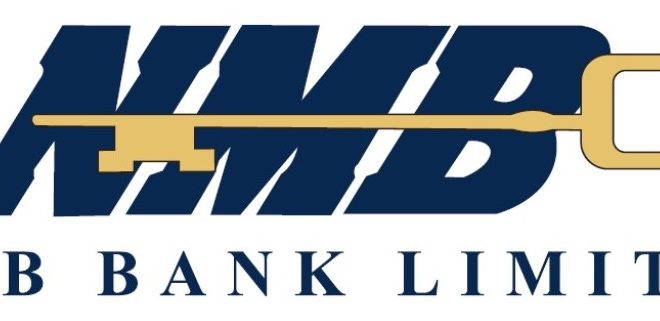NMBZ offers cash or scrip interim dividend
NMBZ Holdings Limited has declared an interim dividend of 31 US cents per share for the half-year period to June 30, 2024, offering shareholders a choice between a cash payout or new shares.
In the official notice, NMBZ said, “The dividend is payable in USD or alternatively as scrip. The ratio of allotment for the scrip dividend shall be 0,02 shares for every one ordinary share.”
Shareholders who elect to receive the scrip option will receive 0,02 new shares for every existing share they own.
The conversion price has been set at ZiG 224,55 cents, based on the market price as of September 11, 2024, when the board of directors approved the dividend.
The exchange rate on the particular day was 14,22 ZiG to the US dollar.
The dividend is payable to shareholders registered by the close of business on October 4, 2024, with the payout date scheduled for around November 1, 2024.
The company will deduct applicable shareholder taxes, and the NMBZ shares will trade cum-dividend on the Zimbabwe Stock Exchange until October 1, 2024.
From October 2, 2024, the shares will trade ex-dividend.
A scrip dividend allows companies to offer shareholders the option to receive dividends in the form of additional shares rather than a cash payment.
This alternative method is often employed during periods of economic volatility when preserving liquidity is a priority.
According to stock broking firm, FBC Securities, “A scrip dividend is when a company offers its shareholders the option to receive dividends in the form of additional shares rather than cash.”
The firm highlighted that NMBZ shareholders had the choice between receiving their dividend in US dollar cash or in the ratio of 0,02 new shares for every 1 existing ordinary share.
This strategy is a common practice during uncertain economic periods.
FBC Securities added, “Historically, scrip dividends have been used to conserve cash during periods of volatile economic environments and/or financial crises.”
This allows companies to maintain dividend payments without eroding investor trust or raising concerns about financial instability. Offering a scrip dividend instead of suspending or cutting cash dividends helps manage investor perceptions while conserving capital.
FBC Securities outlined several reasons why companies, including NMBZ, opt for a scrip dividend. First and foremost, capital preservation is key.
By issuing new shares, NMBZ can avoid depleting its cash reserves, which could be vital for future investments, lending activities, or other growth opportunities.
“During periods of tight cash flow or economic downturns, companies often issue scrip dividends to avoid drawing down on reserves,” the stockbroking firm noted.
Issuing a scrip dividend also helps bolster the company’s equity base, through increasing the number of shares in circulation, NMBZ can improve its overall capital structure, which may strengthen its financial position in the eyes of investors and creditors.
Bolstering the equity base through additional shares can help NMBZ maintain a solid foundation for future growth.
Another advantage of offering a scrip dividend is its appeal to long-term investors.
Shareholders who are more interested in capital gains than immediate income may prefer the scrip option, allowing them to reinvest their dividends for potential future gains.
“A scrip dividend can appeal to shareholders who are interested in long-term investment and capital gains rather than immediate cash returns,” FBC Securities said.
Moreover, the decision to offer a scrip dividend can send a positive signal to investors, as by offering shares, management indicates that they expect the company’s stock to perform well in the future.
“A scrip can be seen as a signal from management that they expect the company’s shares to perform well in the future,” the stockbroker said.
While the benefits of a scrip dividend are clear, FBC Securities also warned of the potential downsides as the market may interpret the issuance of a scrip dividend as a sign that the company is conserving cash because it anticipates future cash flow problems.
“The market may interpret the issuance of a scrip dividend as a signal that a company is conserving cash because it expects future cash flow problems,” the firm cautions.
This perception could lead to a decline in investor confidence and a corresponding drop in the company’s share price.
FBC Securities also addressed the tax implications of accepting a scrip dividend and said from a tax perspective, scrip dividends were treated the same as cash dividends.
The firm explained, “The acceptance of shares in lieu of a cash dividend simply means that the shareholder would have used their dividends to buy more shares in the company.”
Both cash and scrip dividends are subject to withholding tax, meaning shareholders will face the same tax liabilities regardless of which option they choose.-herald








